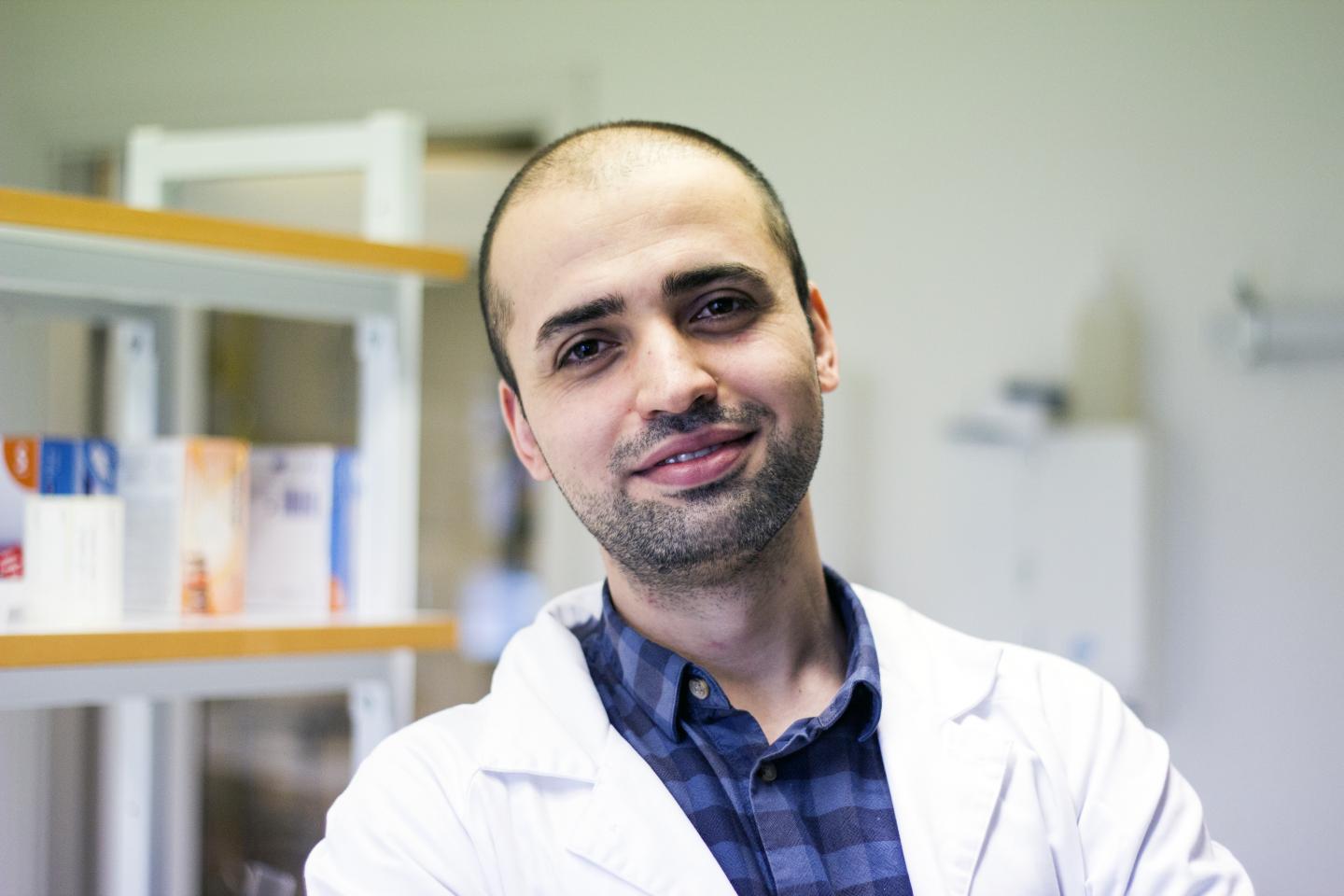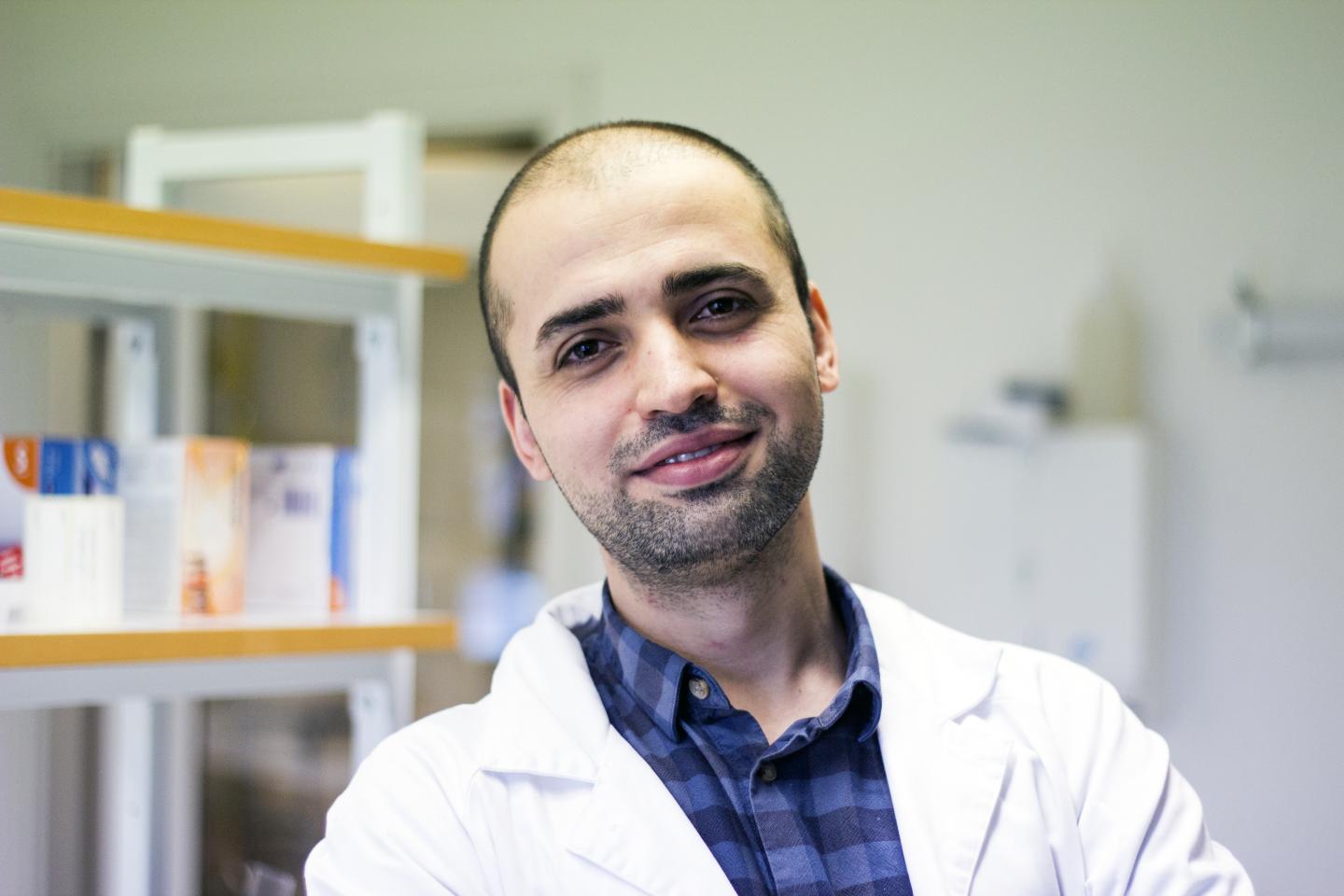
Credit: Photo by Elin Lindstrom Claessen
A high-sensitive blood test can aid concussed hockey players when it might be safe to return to play. In a study published by the journal Neurology, researchers at Sahlgrenska Academy, Sweden, has identified a superior blood-based biomarker for assessing subtle brain injury.
"This could serve as an objective test a long side clinical evaluation to whether a player is fit to return to playing. Currently, we lack an objective test like this", says Dr. Pashtun Shahim, lead author of the article.
The study entails yet another step forward in the research that has been carried out in Gothenburg for several years, with focus on sports-related concussions. This time it included all Swedish ice hockey teams that played in the highest division on the men's side, SHL, during three seasons 2012-2015. Hockey clubs from Lulea in the north of Sweden to Rogle in the south were involved in the work.
"All of the involved team physicians and medical staff have been very helpful with conducting this study. Without them we would have not been able to conduct a study of this kind and magnitude across Sweden. It has been a massive undertaking", notes Dr. Shahim.
In total, 288 players were included, of which 105 suffered a concussion during the seasons in question. From 87 of these players, blood samples were taken 1, 12, 36 and 144 hours (six days) after the concussion. A fifth sample was taken at the time when the person was determined fit to return to unrestricted competition.
The purpose of the study was to compare concentrations in the blood of known biomarkers for concussion, both directly after the event and over a period of time. The results show that it was the levels of the protein neurofilament light (NfL) that had the clearest connection to the severity of concussion, measured as the number of days it took for players to return to play.
"The strength of this study is that we longitudinally followed how these biomarkers are released and cleared from the blood. What we observed was that NfL was released within an hour after the concussion, and then it increased over time in players who had prolonged symptoms", Pashtun Shahim explains.
The levels of the other biomarkers that were studied (tau, S100B and neuron-specific enolase, NSE) decreased quickly and could thereby not indicate how injured the players were after 7-10 days, a time point many players returned to play in the study.
"Currently the duration of players' symptoms determines when it is safe to play again. The finding that serum NfL concentrations correlate with the duration of post-concussive symptoms or return to play, implicates that serum NfL might serve as an objective test of when it is safe to return to play. It is important to protect the players from developing long-term symptoms by avoiding premature return to play. Suffering additional concussion, especially when the current post-concussion symptoms are not fully resolved might have long-term consequences", says Pashtun Shahim.
"There is no need for a biomarker in order to make a diagnosis of concussion, it is a clinical diagnosis that is based on the patient's symptoms", he continues. "What we are really after is a prognostic biomarker that helps the physicians determine which players or patients might be at increased risk of developing persistent post-concussive symptoms, and thereby adjust the level of rest and care for these players."
###
Media Contact
Pashtun Shahim
[email protected]
314-938-7552
@uniofgothenburg
http://www.gu.se/english
Original Source
https://sahlgrenska.gu.se/english/research/news-events/news-article//a-high-sensitive-blood-test-when-it-is-safe-to-return-to-play-after-a-sports-related-concussion.cid1564034 http://dx.doi.org/10.1212/WNL.0000000000005518





